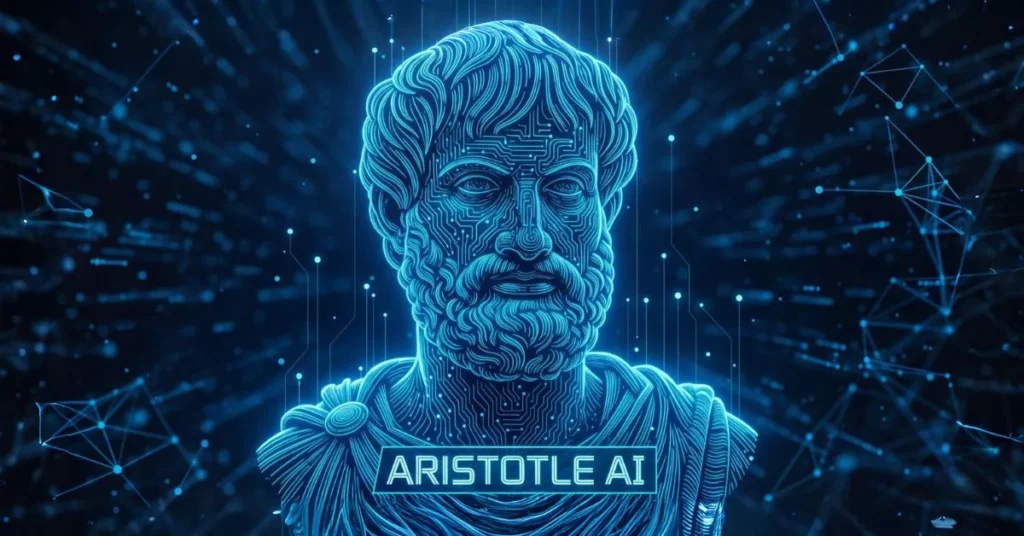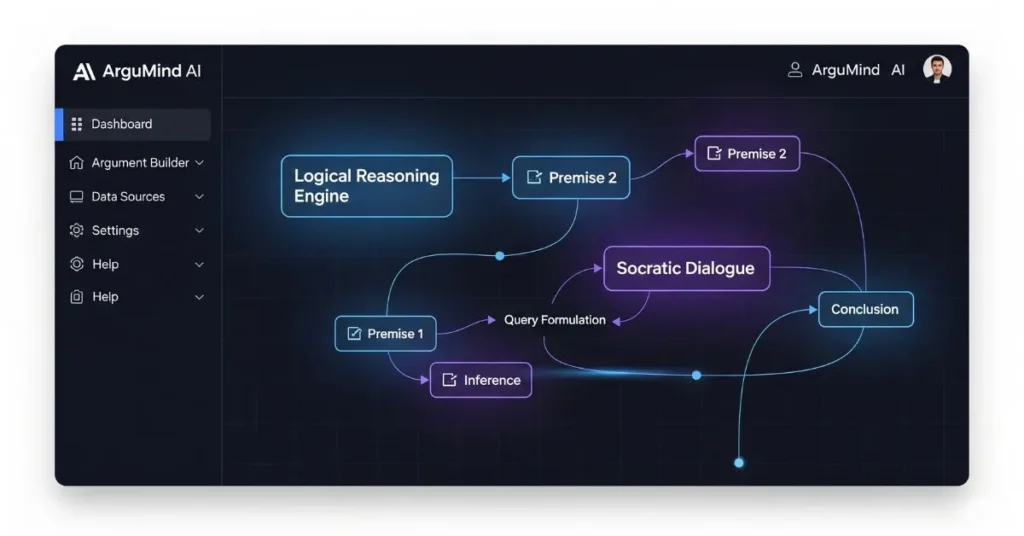Hey there! If you’re active in the tech world, you’ve probably heard the buzz. Every few months, a new tool pops up, claiming to be the next big thing. For the last couple of years, ChatGPT has been the undisputed king of AI chatbots. But now, a new name is making waves in 2025: Aristotle AI.
The big question on everyone’s mind is simple: What is Aristotle AI, and is it powerful enough to challenge the giant that is ChatGPT?
People are calling it the “ChatGPT Killer.” That’s a bold claim! So, let’s not just go by rumors. Let’s dive deep, break it down in simple terms, and see what this new tool is all about. Is it just hype, or is it the real deal?

What is Aristotle AI?
Let’s get straight to the point. Aristotle AI is a new large language model (LLM), just like ChatGPT. But here’s where it gets interesting. While ChatGPT is designed to be a jack-of-all-trades—it can write poems, code, emails, and chat about almost anything—Aristotle AI is built with a special purpose.
Its creators named it after the great philosopher Aristotle for a reason. This AI focuses heavily on logical reasoning, critical thinking, and factual accuracy.
Think of it this way:
- ChatGPT is like a super-creative and knowledgeable friend who can brainstorm endless ideas with you.
- Aristotle AI is like a calm, logical professor who helps you build a strong argument, verify facts, and think through complex problems step-by-step.
It’s not just about giving you an answer; it’s about helping you understand why that’s the right answer. This focus on logic and structured thinking is its main selling point.
Key Features That Make Aristotle AI Stand Out
Alright, so it’s all about logic. But what does that mean in practice? What features does it have that your current AI tools don’t? Here are a few that are generating a lot of buzz:
1. The Logical Reasoning Engine: This is its core strength. When you ask Aristotle AI a complex question, it doesn’t just spit out a paragraph. It often breaks down its thought process. It will show you the premises, the steps it took to connect the dots, and how it arrived at the final conclusion. This is a game-changer for researchers, students, and anyone who needs to build a solid, evidence-based argument.
2. Real-Time Fact Verification: We all know AI can sometimes “hallucinate” or make up facts. Aristotle AI tries to solve this by actively cross-referencing information from multiple reliable sources in real-time. More importantly, it provides clear citations and links directly to the sources it used, so you can check the facts for yourself. This builds a huge amount of trust.
3. Socratic Dialogue Mode: This is a really cool feature. Instead of just giving you an answer, you can put it in “Socratic Mode.” In this mode, the AI will respond to your questions with more questions. Its goal is to help you think deeper about your topic, challenge your own assumptions, and refine your query until you arrive at a well-thought-out conclusion together. It’s like having a personal thinking coach.
4. Ethical Framework Integration: The AI is built with a foundational ethical framework based on philosophical principles. It’s designed to analyze requests not just for what they are, but for their potential ethical implications, making it a more responsible and safer tool for sensitive topics.

Aristotle AI vs. ChatGPT: A Quick Comparison
To make it super simple, let’s put them side-by-side.
| Feature | Aristotle AI | ChatGPT |
| Core Strength | Logical Reasoning & Factual Accuracy | Creativity & Conversational Fluency |
| Best For | Research, academic work, legal analysis, fact-checking | Content creation, brainstorming, coding, daily tasks |
| Data Handling | Cites sources explicitly and verifies in real-time | Uses its training data; can be less transparent |
| User Interaction | Can guide you through a problem with questions | Gives direct answers and elaborates on them |
| Weakness | Might be less “creative” or “fun” for casual chats | Can sometimes be factually incorrect or “hallucinate” |
The Final Verdict: Is Aristotle AI Really a “ChatGPT Killer”?
So, here’s the honest truth. Calling Aristotle AI a “ChatGPT Killer” is probably not the right way to look at it.
It’s not here to kill ChatGPT; it’s here to offer a powerful alternative.
Think of it like having a toolbox. You wouldn’t use a hammer to saw a piece of wood, right? Both are useful tools, but for different jobs.
- If you’re a blogger who needs 10 creative article ideas, a student who needs to brainstorm for an essay, or a developer who needs a quick code snippet, ChatGPT is still your go-to tool. It’s fast, incredibly versatile, and creatively brilliant.
- However, if you’re a researcher writing a paper, a lawyer analyzing a case, a student needing to build a fact-checked debate argument, or anyone whose work depends on rock-solid logic and verifiable truths, Aristotle AI is a revolutionary new tool.
So, no, it won’t replace ChatGPT for everyone. But for a large group of professionals and academics, it might just become the more essential and trusted AI assistant.
Conclusion
The arrival of Aristotle AI in 2025 is incredibly exciting. It signals a shift in the AI world from building “do-everything” models to creating specialized tools that excel at specific tasks. It challenges the idea that one AI has to rule them all.
Aristotle AI’s focus on logic, truth, and transparency is a welcome change and a massive step in the right direction for responsible AI development. It may not kill ChatGPT, but it will definitely give it a serious run for its money in the arenas where facts matter more than flair.
The future of AI is not about one winner; it’s about having the right tool for the right job. And Aristotle AI has just proven itself to be a very, very sharp tool.
What do you think? Are you excited to try Aristotle AI? Let us know your thoughts in the comments below!
Read more:-
Magic School AI: Your New Teaching Assistant? A Guide
PAID vs FREE AI Tools in 2025: Which Ones Are Worth Your Time?
Gamma AI: Revolutionizing Presentation and Content Creation with AI
